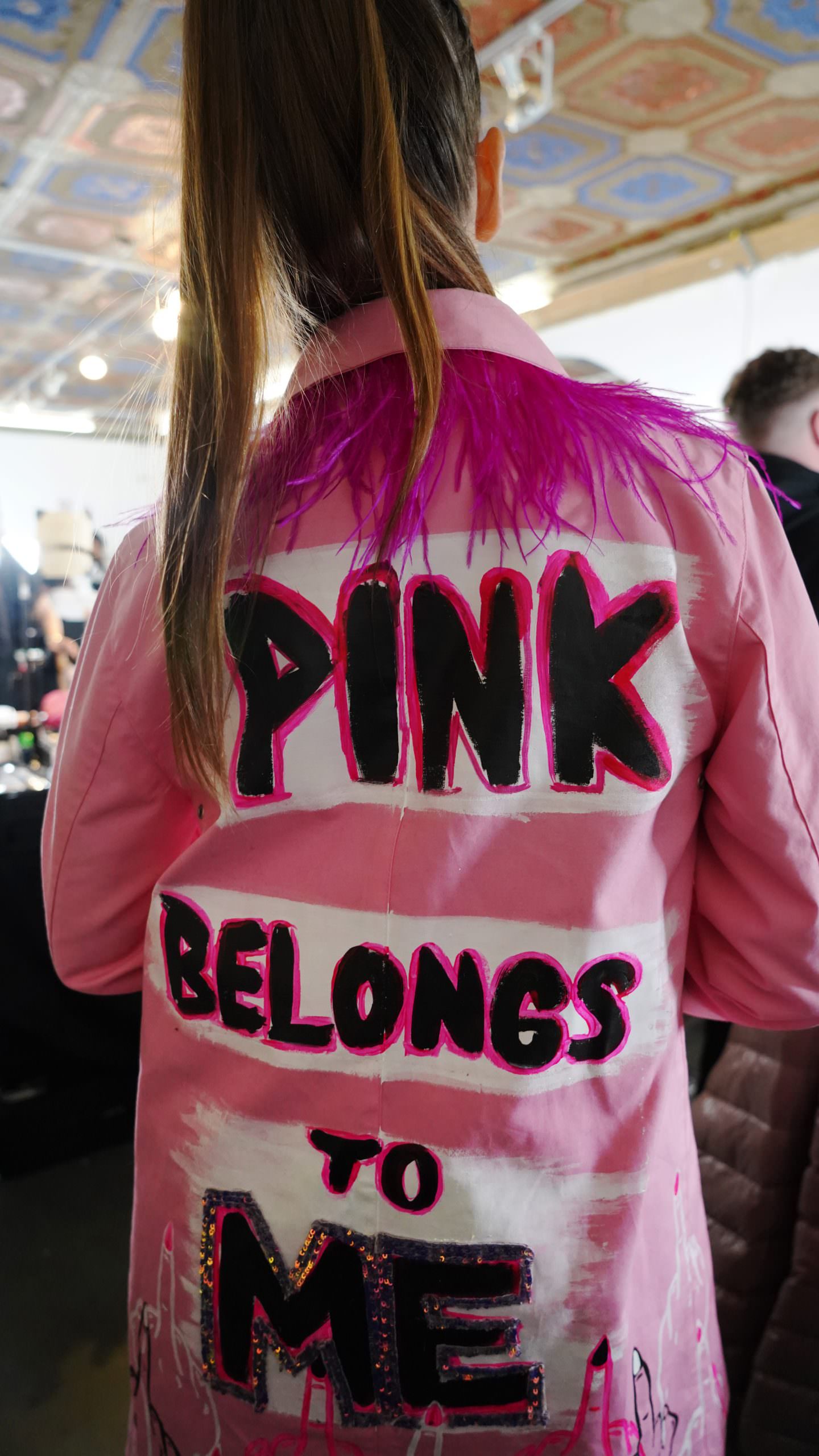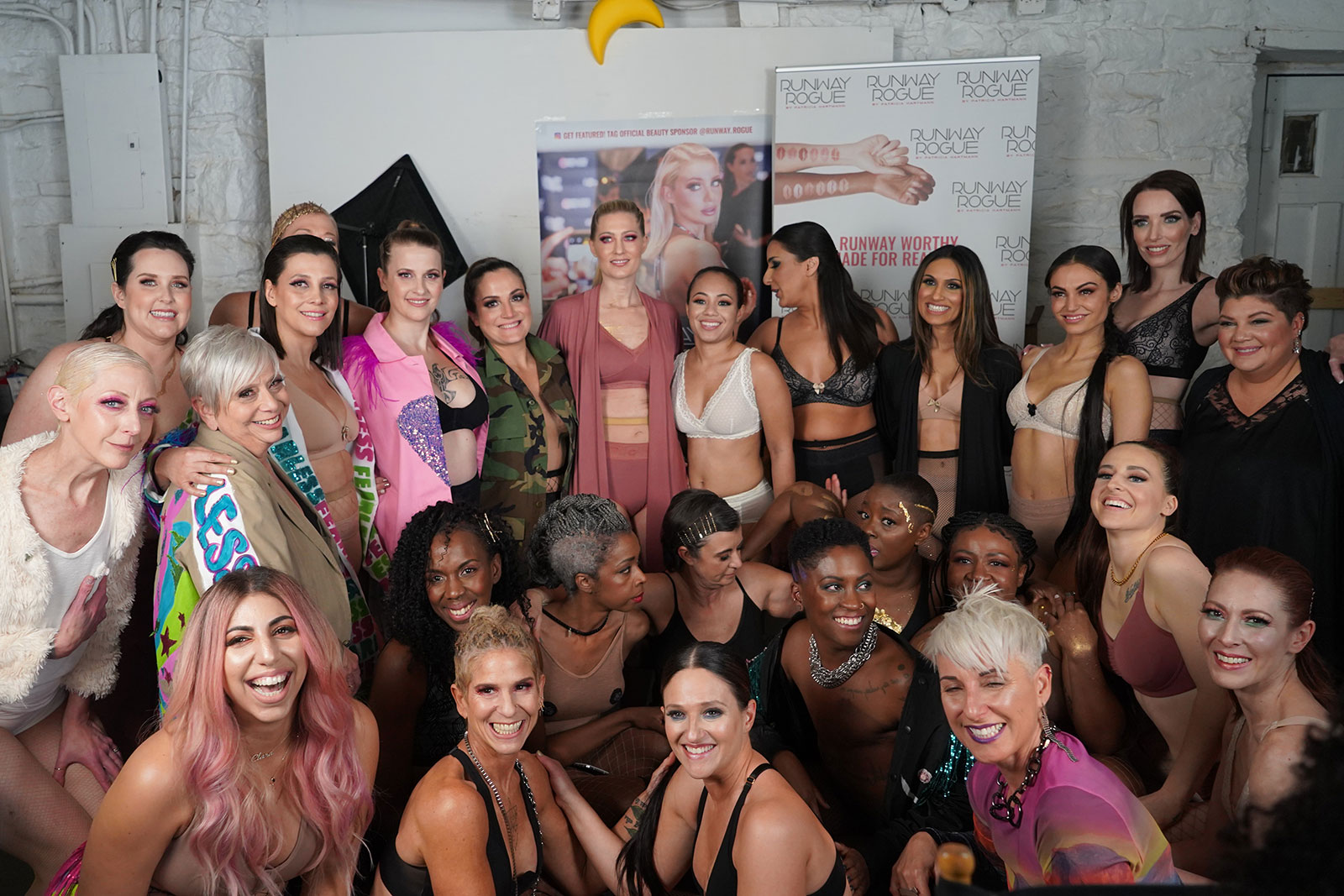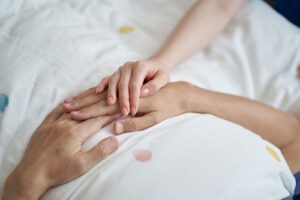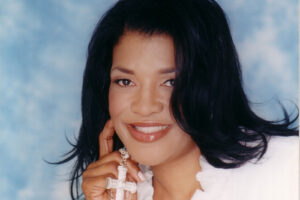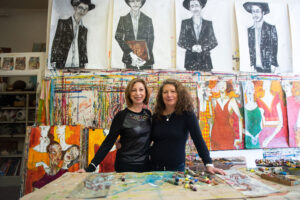Photography by Jordan Fiordaliso
Fear is leaving your child motherless. Fear is your cancer returning. Fear is wondering what’s next after diagnosis, treatment, and the unknown ahead. Fear is also stepping out on a runway scantily clad, showing your reconstructed breasts, scars, or newly flat chest to the world.
But 32 brave breast cancer previvors, survivors, and thrivers of all ages, stages, shapes, and sizes put their fears aside for the fourth annual #Cancerland AnaOno New York Fashion Week show. Held on Sunday, Feb. 9, the show benefitted METavivor, a nonprofit dedicated to funding research for stage IV breast cancer.
Wearing glitter, gold leaf body paint, Swarovski crystals, fishnet tights, and lacy AnaOno lingerie, the women strutted their stuff to funky tunes at the Angel Orensanz Center in lower Manhattan. Cheers, whistles, and exuberant applause from a packed audience propelled the mostly first-time models forward. They wore #fearless tattoos, as well as messages of “Hope” and “Empowerment” printed on their boots. One even donned a pink jacket covered with pictures of raised middle fingers, flipping cancer off.
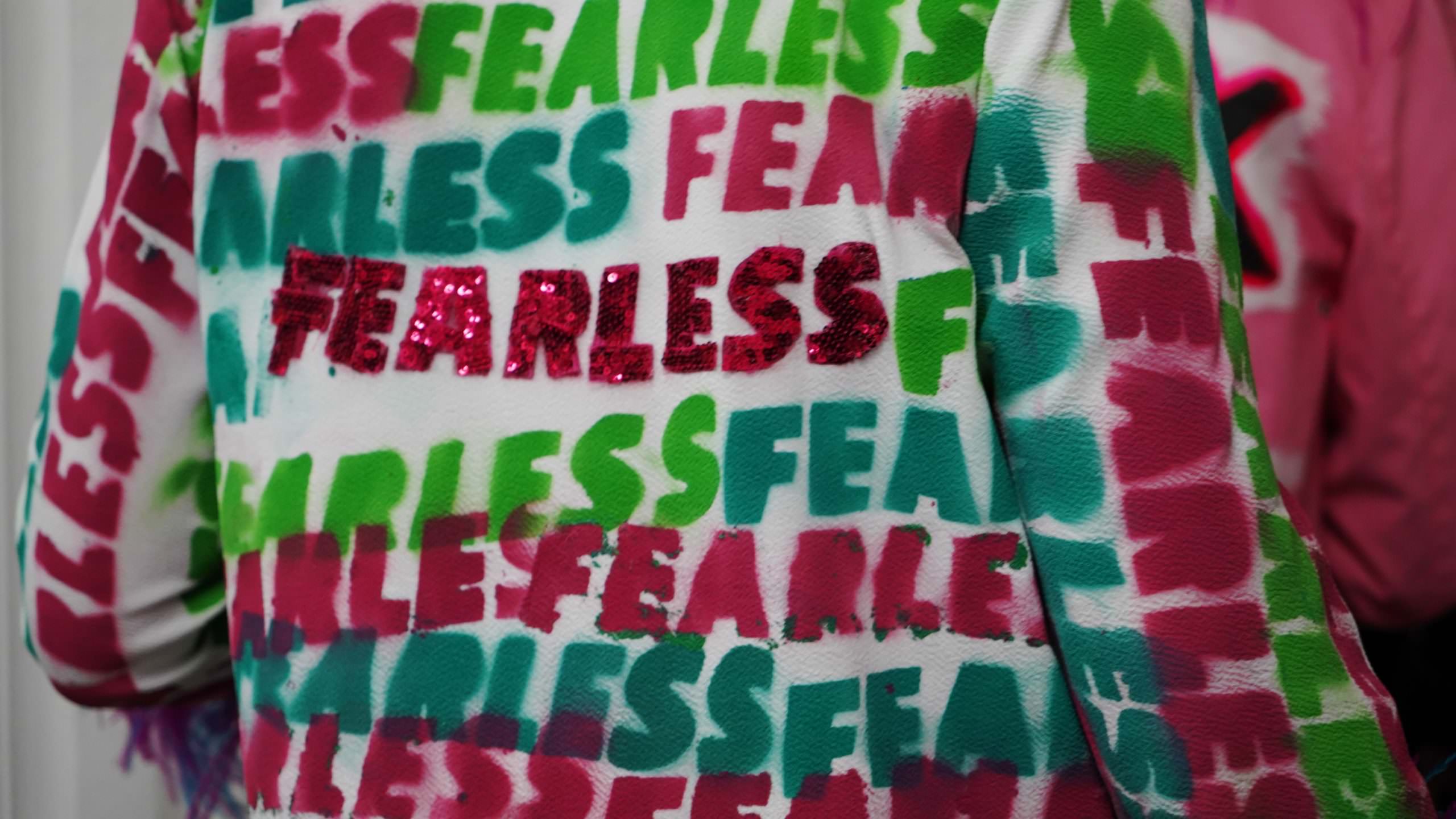
This year’s theme was #fearless, shining a light on what is feared most within the breast cancer community, and how to face these fears together.
“What does the breast cancer community fear? We fear receiving a frightening diagnosis; we fear a reoccurrence; we fear death,” said survivor Dana Donofree, Founder & CEO of AnaOno Intimates, a lingerie brand designed for women affected by breast cancer.
“In 2019, our runway models were all metastatic breast cancer patients, and the show received tons of attention for demonstrating how you can live boldly and proudly even while facing a terminal illness,” said Donofree. “This year, we wanted to show the world that as an army of those affected by breast cancer, from previvors to survivors to metavivors, together we really can make a difference for our entire community. Together we are strong. Together we can bring change.”
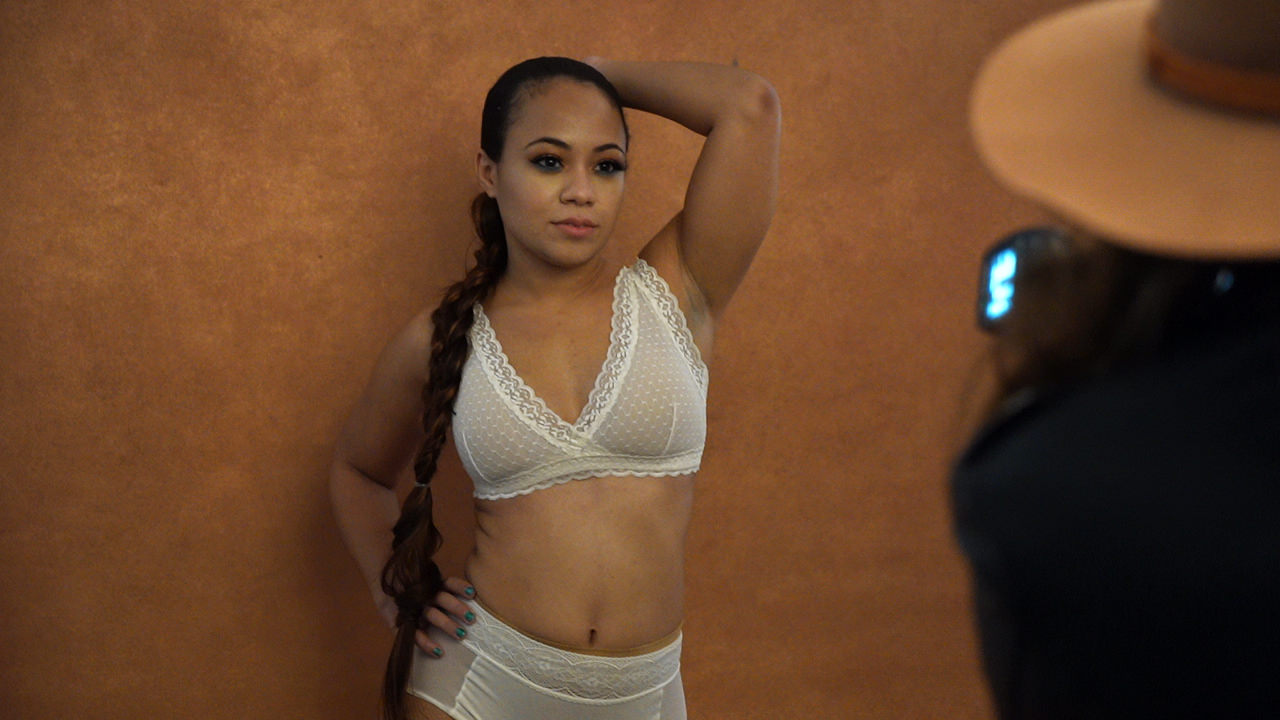
That change, she said, is more funding for research, and eventually a cure for stage IV breast cancer, a terminal illness. It’s important to all those diagnosed, Donofree explained, since one out of three women with early-stage breast cancer will eventually develop metastatic disease.
“Together,” she said, “we are fearless.”
More than $200,000 was raised from the show, with supporters clearly moved by the speeches, the models, and a preview of an empowerment film; some supporters threw $20 bills onto the stage afterwards. Thanks to corporate sponsor, Eisai, 100 percent of the money raised goes directly to fund metastatic research.
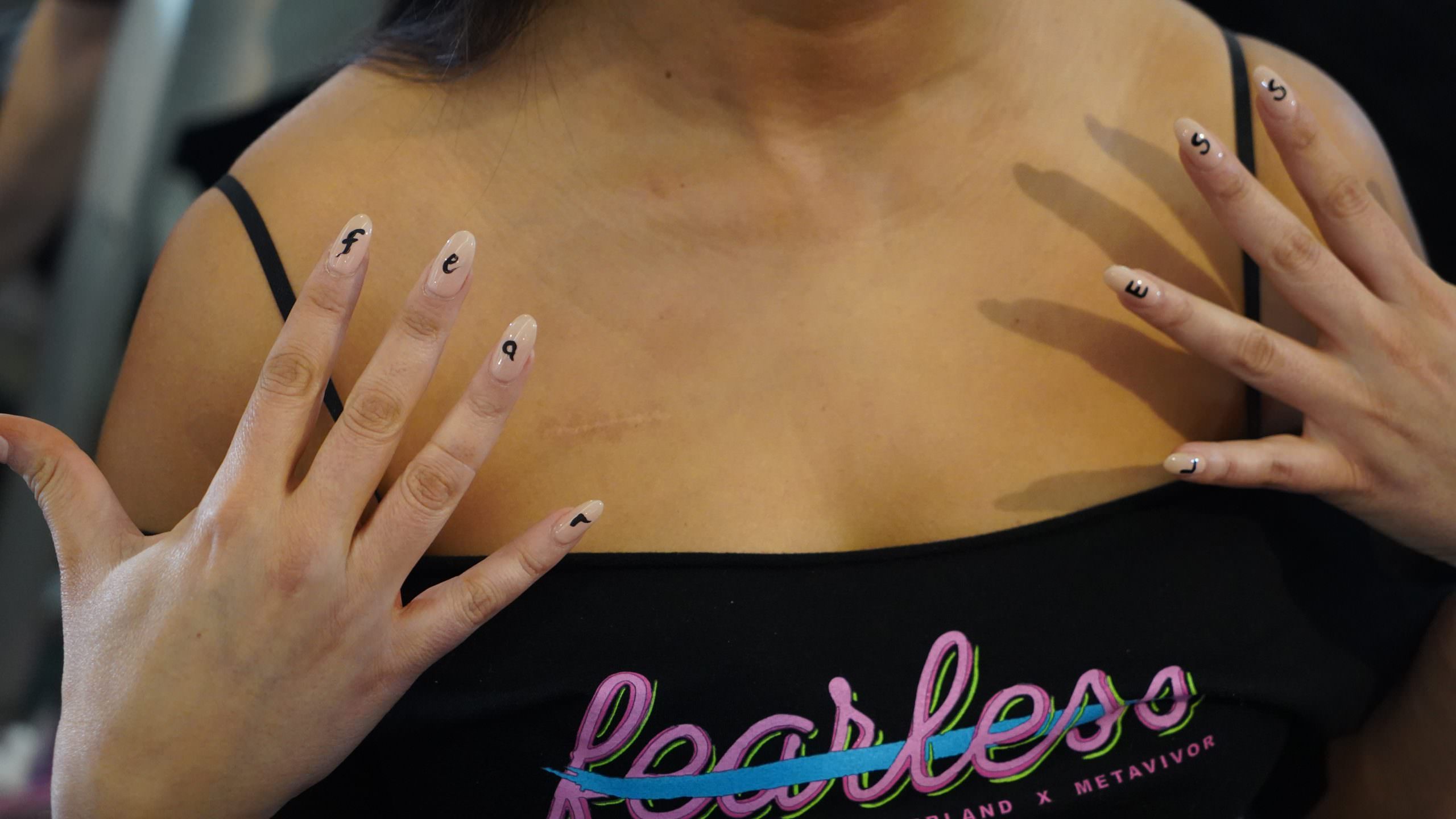
Model Asha Miller’s chest was pounding as she geared up to walk the runway while her husband looked on, tears streaming down his face in pride. Just four weeks ago, she went flat, removing the implants from earlier breast cancer surgery after they were recalled for causing health problems.
Miller’s fresh scars didn’t stop her; they just made her stronger. “I traded nerves for courage,” she explained. “This helped me to own my body. It’s extremely hard not to listen to the stereotypes of what society says beauty is. But my scars are beautiful. This is what life looks like, and I’m grateful to be alive.”
While the show was fun, with outrageous fashions and courageous women, the hosts were clear that their message is a serious one. “Please don’t forget why we are here,” said Beth Fairchild, past president and current board member of METavivor. Fairchild was diagnosed with metastatic breast cancer in 2014 at the age of 34.
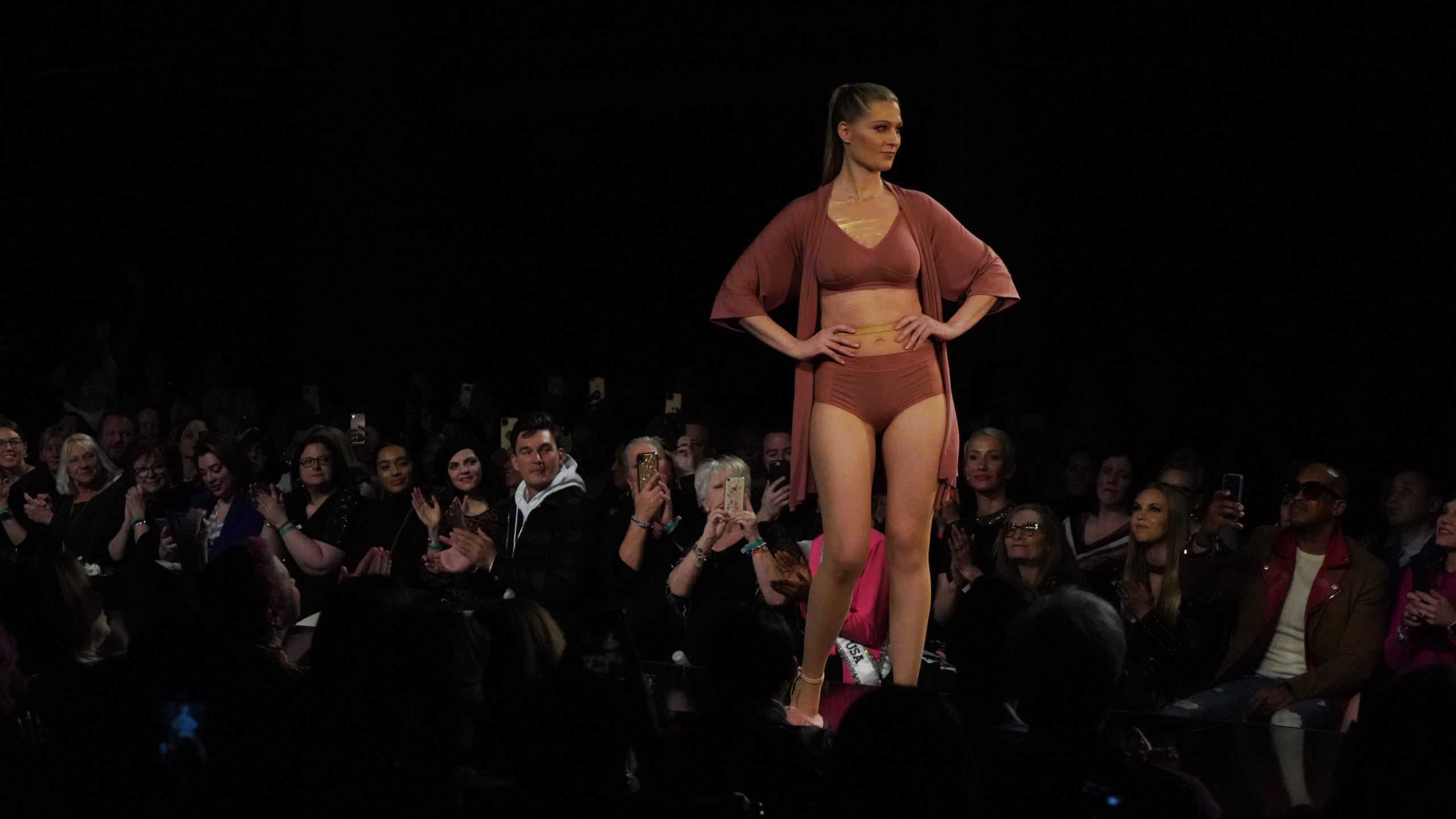
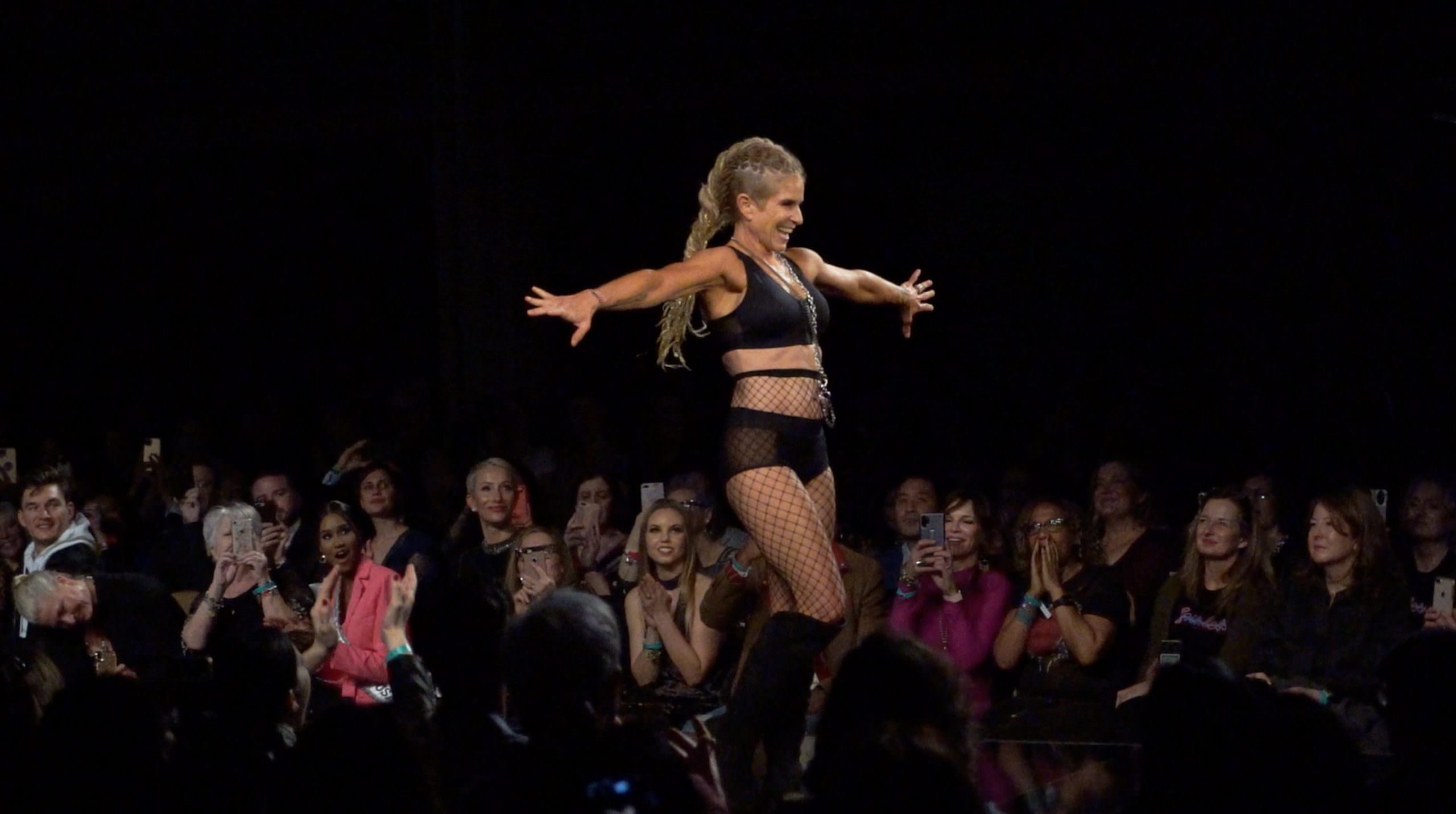
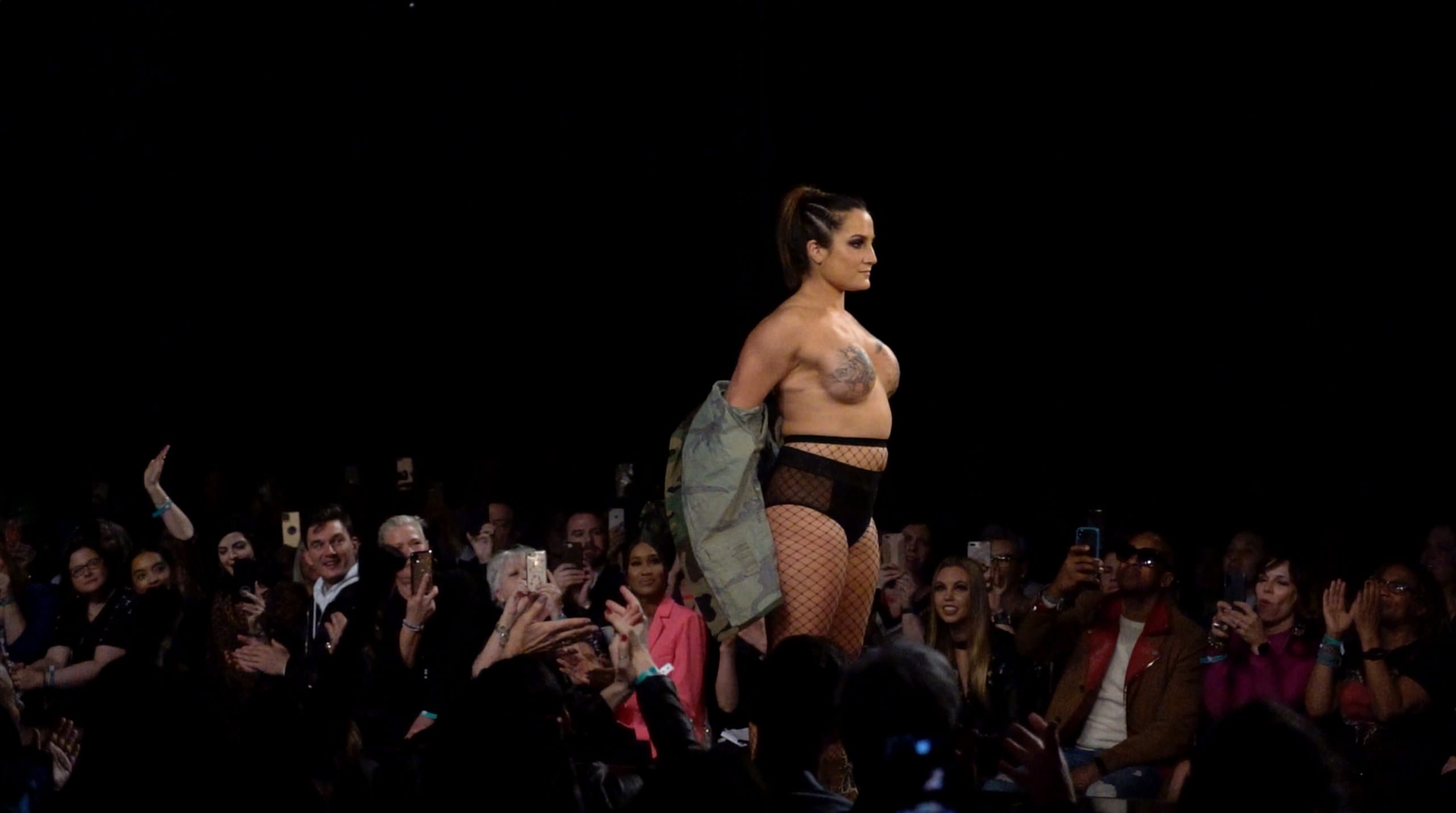
“Forty-two thousand people die every year of metastatic breast cancer, and that’s just in the United States alone. So, by the end of today, 115 people will be saying goodbye to their loved ones. By the end of the week, 800 people will have died from metastatic breast cancer.”
“But it doesn’t have to be that way,” she continued. “Through funding scientific research, we can get more treatments that will extend the lives of people living with metastatic breast cancer. The median survival is 18 to 36 months, and that is simply not enough.” Through funding research, she said, “we can extend that time, and we can give women more time with their families and more memories.”
That’s what another speaker, Christina Zajicek, hopes for: “Cancer has smashed my life on the floor three times. All I want is more time and more treatment options so I have the chance to keep rebuilding.”
Zajicek dreams of being like other healthy 31-year-olds, travelling the world, marrying the man of her dreams, and having babies; things that can seem unattainable for those with stage IV breast cancer.
For her, research is life. And her goal is to have a long one. Her biggest wish is simple: “to see my smile lines turn into wrinkles.”
